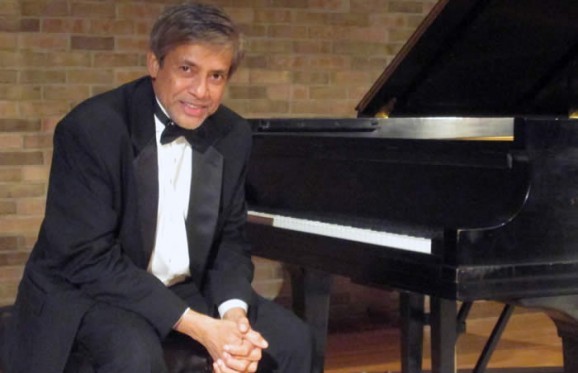Learning
Dr. Abeyaratne to perform with the Symphony Orchestra of Sri Lanka
Associate Professor of Music Dr. Harsha Abeyaratne will be a featured soloist with the Symphony Orchestra of Sri Lanka on May 23.
Dr. Abeyaratne is a native of Sri Lanka and has appeared in numerous concerts there, but this is his first appearance with that nation’s orchestra. He will perform as soloist for Rachmaninov’s First Piano Concerto, which the composer first created in 1890.
The symphony’s performance centers on Romantic Masterworks, and will include Tchaikovsky's 4th Symphony, excerpts from Grieg's Peer Gynt Suite No.1, and Rachmaninov's First Piano Concerto. The concert will be conducted by Ananda Dabare, who is noted for his insightful and passionate interpretations of the works of the Russian masters.
As a pianist, Dr. Abeyaratne maintains an active career as a soloist, accompanist, chamber musician and pedagogue. He has performed in Chicago, New York; Jacksonville Charleston, West Virginia; and Ashland, Oregon. He has also given solo recitals in Sri Lanka, one of which was sponsored by the American Embassy in Colombo.
Critics have referred to his playing as “poetic” and “passionate,” and this year he was a recipient Ball State University School of Music Alumni Achievement Citation award. This fall, he will study with renowned pianist and teacher Peter Takacs, who is professor of piano at the Oberlin Conservatory of Music.
At Muskingum, Dr. Abeyaratne is coordinator of keyboard studies and teaches piano, piano accompanying, music theory and aural skills. He regularly performs with his colleagues as a member of The Alato Trio. In addition, he has performed with Southeastern Ohio Symphony Orchestra and the Muskingum Valley Symphonic Winds.
He received both his bachelor of arts and bachelor of science degrees from Lewis and Clark College and both his master of music and his doctor of arts in music degrees from Ball State University. He joined the Muskingum University faculty in 2003.